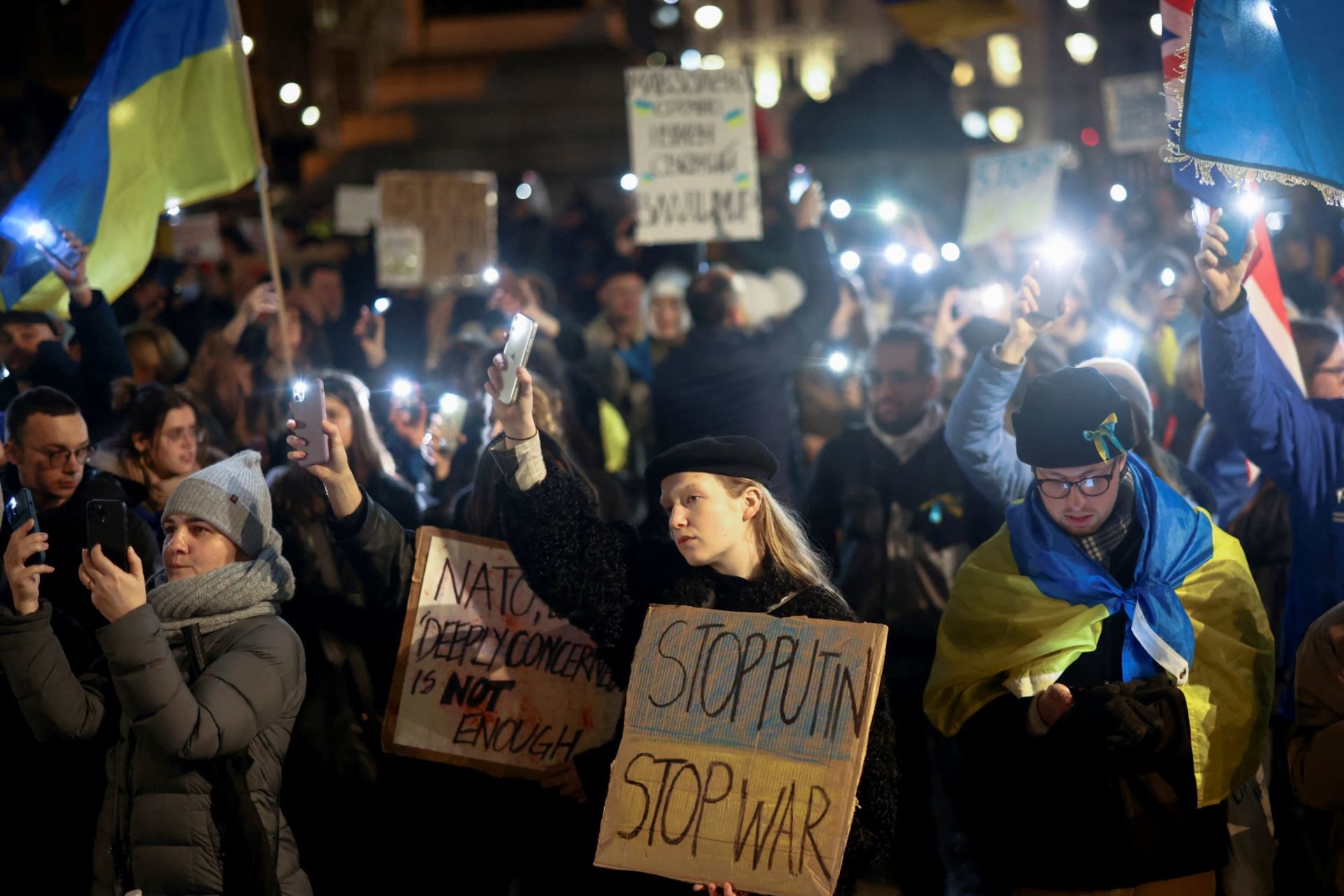The Promise of Digital Activism—and its Dangers
Social media can be a powerful tool for digital activists—and for the governments trying to silence them.

By experts and staff
- Published
Experts
![]() By Catherine PowellAdjunct Senior Fellow for Women and Foreign Policy
By Catherine PowellAdjunct Senior Fellow for Women and Foreign Policy
On the day I was scheduled to interview for a position with the White House National Security Council, I found out that my interview would have to be rescheduled due to the toppling of former Egyptian President Hosni Mubarak. Even as activists in Tahrir Square were using Twitter and other social media to mobilize a large-scale revolution for democracy and human rights, Mubarak had “shut down” the internet and jailed Egyptian bloggers to crush dissent. Since then, I have been fascinated by the role of social media as an organizing tool, even as I remain cautious about the role of government censorship and surveillance capitalism. From the subsequent uprisings in the Middle East to the Black Lives Matter and #MeToo movements in the United States to the role of social media in the Ukraine-Russia information war today, it has become apparent that social media is a powerful tool for both those who seek to enhance and those who seek to limit freedom.
Through the Council on Foreign Relations’ roundtable series, I was fortunate to speak with Brooke Foucault Welles, associate professor at Northeastern University and coauthor of #HashtagActivism: Networks of Race and Gender Justice, and Meighan Stone, former adjunct senior fellow at the Council of Foreign Relations and coauthor of Awakening: #MeToo and the Global Fight for Women’s Rights, about how marginalized groups use their social media platforms to advocate for societal improvements. While Foucault Welles focuses on digital social justice activism in the United States and Stone focuses on women’s rights activism around the world, both authors observe striking commonalities in their work; namely, that while digital activism has the potential to create transformative and concrete change, there exist a plethora of factors that can limit hashtag activism’s efficacy.
Foucault Welles provided some insights as to how hashtag activism influences mainstream media coverage, representing a “transformative opportunity to inject new narratives or to change the narratives and the way we talk about things.” The activists at the center of these digital campaigns are incredibly important. While some not familiar with social justice campaigns might believe that movements like Black Lives Matter erupted spontaneously during the summer of 2020, Foucault Welles reminded us that this is not the case. In fact, activists tend to operate in digital networks that overlap with social justice movements that have a presence “on the ground,” allowing activists to learn and develop effective strategies to spread their message. As a result, each subsequent movement grows larger and gathers steam more quickly.
When it comes to the international #MeToo movement, Stone said that while the gender gap in technology access remains persistent, young women all over the world are making “concrete legal, economic, and political wins” through their online activism. The global #MeToo movement is both transnational and hyper-local. While activists around the world were inspired by Tarana Burke’s movement that American celebrities later popularized as a hashtag, they also focused on specific issues to their communities. Stone brought up the example of young women activists in Nigeria who digitally organized the #NorthNormal campaign in order to push all Nigerian states to adopt the Violence Against Persons Prohibition Act, which comprehensively addresses violence against women. Hyper-local campaigns have also spread transnationally, as in the case of Loujain al-Hathloul, the women’s rights activist whose imprisonment and torture at the hands of the Saudi regime sparked international outcry. Al-Hathloul was released last year.
Despite the power of hashtag activism to change national and international conversations, significant backlash to these online campaigns presents enormous risks to activists. This backlash is certainly not unique to digital activism; Foucault Welles noted that “As soon as any marginalized group starts to have some inroads to power, you get the backlash.” Stone agreed, and questioned whether there were any social movements that were not met with backlash. The real question, Stone said, is whether activists decide to endure that backlash or not. While the backlash activists experience is very serious and threatening, it should not be taken as “evidence that the movement is unsuccessful or should stop.” Even though backlash in authoritarian regimes is particularly severe, such as the imprisonment of women’s activists in Saudi Arabia, backlash presents a problem in democratic countries like the United States as well. In addition to suppression of academic freedom and speech on questions of race (as with bans on “critical race theory” in the classroom and libraries), recent state and local restrictions through legislation, school board policies, and other measures now target LGBTQ+ children and their families. Such restrictions on expression, including self-expression, reflect both the power of civil rights progress as well as the significant retaliation social justice activists face.
Recently too, we have seen a surge in both online and offline activism in response to Russia’s invasion of Ukraine. Russian activists have found creative ways to organize protests against Russian President Vladimir Putin while Ukrainian activists have used the internet to find evidence of Russian war crimes. As a testament to the crucial role large tech companies play, some have observed that Russia’s usual disinformation campaigns, on display during Russia’s 2014 annexation of Crimea, are not as effective this time around. Tech companies have implemented new policies and devoted more resources to countering Russian disinformation. Twitter’s ban on ads in Russia and Ukraine and Facebook parent company Meta’s creation of an operations center staffed by Russian and Ukrainian speakers are some examples of how tech companies have tried to combat Russia’s disinformation war. Conversely, others have described these measures as haphazard, inconsistent, and inadequate to confront the magnitude of Russia’s disinformation efforts. Moreover, experts have increasingly called attention to coordinated disinformation campaigns on TikTok and TikTok’s failure to adequately contain the problem. As one report notes, “Over 180 Russian influencers on TikTok are involved in a seemingly concerted propaganda campaign using the caption ‘Russian Lives Matter[.]’” Another report indicates influencers on Russian TikTok are being paid to promote propaganda from the Kremlin.
Digital activism is not as simple as someone clicking “retweet” on Twitter—which all too often involves enormous risk to the activists themselves or can result in spreading disinformation. Foucault Welles reminds us that digital movements depend on the extent to which a few powerful companies are willing to defend free speech, even in the face of immense pressure from national governments. What current tech companies are doing to limit Russian disinformation could prove instructive in other areas. Tech companies could devote far more resources to combating targeted harassment of women’s rights activists and journalists, and when national governments are responsible for disinformation or harassment campaigns, tech companies could use strategies similar to the ones they are currently using in response to Russia’s invasion of Ukraine. The United States government could also do more to support digital activism by reevaluating its partnerships with authoritarian regimes and directing more aid to women’s rights organizations and digital rights groups.
Watch the full roundtable here: Social Justice Movements and Twitter: Digital Revolutions in the United States and Abroad
